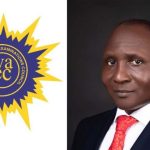
RMAFC has come under heavy criticism over its recommendation for an increase in the basic salaries of public office holders in the country.
Chairman of the commission, Muhammadu Shehu, who was represented by RMAFC commissioner from Kebbi State, Mrs Rakiya Tanko-Ayuba, dropped the bombshell on Tuesday in Birnin Kebbi, the state capital, while presenting the reviewed remuneration package of political and judicial office holders to the State Governor, Dr Nasir Idris.
But Obi described the recommendation as “insensitive,” warning that it should not be the priority of a nation still struggling with minimum wage with over 133 million Nigerians currently living in abject poverty.
The former Anambra governor faulted the move via his verified Twitter handle on Thursday.
He tweeted, “I learnt with great reservation, the approval of a 114% increase in the salaries of elected politicians, including the President, vice president, governors, lawmakers as well as judicial and public office holders by the Revenue Mobilisation, Allocation and Fiscal Commission.
“This is not the appropriate time for such a salary increment if it is at all necessary. We are living in a time when an average Nigerian is struggling with many harsh economic realities, and with over 130 million Nigerians now living in poverty. This is a moment when recent reform measures by the government have increased living costs astronomically.
“One would expect the leaders and public officeholders to focus on cutting the cost of governance, alleviating the sufferings of Nigerians. This moment calls for creative ways of pulling the majority out of poverty. In the immortal words of Shakespeare’s Julius Caesar, ‘What touches us ourself shall be last served.’
“The leaders, therefore, should prioritise what affects the masses and those on the lower strata of society over themselves. The sacrifice, at this time in our nation, should be borne by the leaders. The increment should be reversed immediately, and the savings should be devoted to fixing education, healthcare and poverty alleviation especially in the remote rural areas.”













